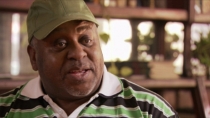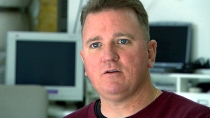Reclaiming a life
Your browser does not support the video tag.
Connie, a victim of domestic violence, suffered for years from undiagnosed and untreated PTSD. She...
Miles McFall Ph.D.
Dr. McFall has directed the posttraumatic stress disorder (PTSD) programs at VA Puget Sound Health Care System for nearly 25 years. The PTSD Program...
What “The Hurt Locker” Got Right
Much to the confusion of those who have not experienced combat--- parents and spouses, siblings and friends-- many young people say that ‘going to war’ was one of the best things that ever happened to them.
The lingering war
Your browser does not support the video tag.
Bob, an Iraq War Veteran suffering from PTSD, five years after returning home,continues to be...
Edna Foa, Ph.D.
Dr. Foa is a Professor of Clinical Psychology and Psychiatry at the University of Pennsylvania and Director of the Center for the Treatment and...
Homecoming: Finding The Way Home From Trauma and War
On Oct 13, 2010 the 33rd Chilean miner emerged from the mine that had entrapped him
Suzanne Phillips, PsyD
Dr. Phillips is a licensed Psychologist, Psychoanalyst, Diplomat in Group Psychotherapy and Co-Author of Healing Together. She has been an Adjunct Professor of Clinical...









